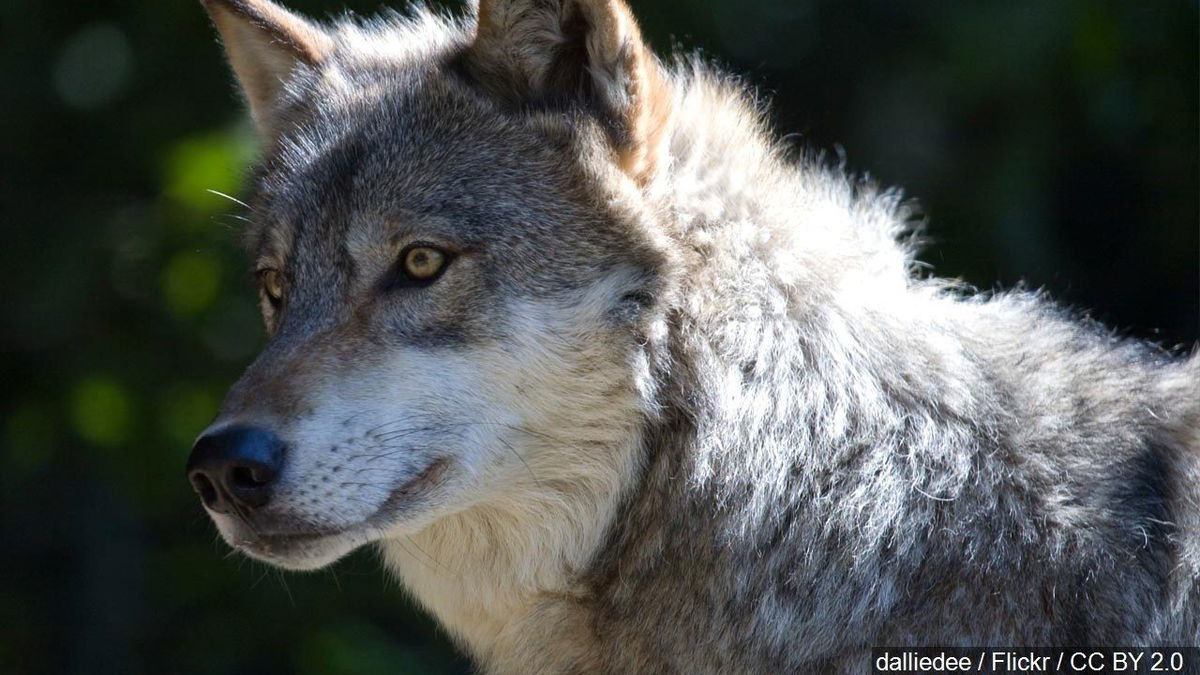Bill to increase killing of Idaho wolves clears House panel

BOISE, Idaho (AP) - Legislation that could lead to killing up to 90% of the wolves in Idaho continued its speedy trip through the Statehouse on Thursday.
The bill introduced just two days earlier cleared a House panel after already sailing through the Senate. It could be voted on in the House as early as Friday.
The agriculture industry-backed bill allows the state to hire private contractors to cut the wolf population from about 1,500 to 150. It also allows the use of night-vision equipment to kill wolves as well as hunting from snowmobiles and all-terrain vehicles, among other changes.
The Idaho Fish and Game Commission, which manages the state's wildlife, earlier in the day voted to oppose the measure. The commission, while noting it also wanted to reduce the wolf population, cited concerns that the proposed law would override certain commission decisions.
Republican Rep. Fred Wood, a former member of the commission, supported the measure.
"We do have a wolf problem in the state of Idaho, and I can tell you now you're not going to solve that wolf problem at all until you can start poisoning them," he said. "And there's not a single individual around here that is going to recommend that."
Backers said there are too many wolves and they're attacking cattle and sheep, costing ranchers hundreds of thousands of dollars. They also said they are reducing elk and deer populations and taking away opportunities for hunters.
Opponents said the legislation threatens a 2002 wolf management plan involving the federal government that could ultimately lead to the U.S. Fish and Wildlife Service taking back control of managing the state's wolves. Opponents also contend that Idaho residents want the Fish and Game Commission to decide wildlife policy, not lawmakers.
The 2002 plan calls for at least 150 wolves and 15 packs in Idaho. Republican Sen. Van Burtenshaw, the bill's sponsor, has said the state is allowed to increase the killing of wolves to reach that level. If the wolf population falls below 150, the killing of wolves would have to be reduced.
Also according to the plan, if Idaho's wolf population fell to 100, there's a possibility the U.S. Fish and Wildlife Service could resume management of its wolf population. The 2002 document says wolf management could revert to what was in place when wolves were listed under the federal Endangered Species Act.
Idaho Department of Fish and Game reported in February that the wolf population has been holding at about 1,500 the past two years. The numbers were derived by using remote cameras and other methods.
About 500 wolves have been killed in the state in each of the last two years by hunters, trappers and wolf-control measures carried out by state and federal authorities.
Naomi LeGere-Gordon of the Idaho Wool Growers Association said there are about 220,000 domestic sheep in the state. She told lawmakers that a problem for sheep growers is that sheep don't put on as much weight when chased by wolves, costing money. She also said sheep growers aren't adequately reimbursed when wolves kill sheep.
"For us, it's our livelihood," LeGere-Gordon said.
Cattle ranchers testified that wolves chasing cattle also cost them money because the cattle didn't put on as much weight. They also said it was hard to prove that wolves killed cattle because dead cattle were often swiftly consumed.
"These animals have taken opportunities from my children," rancher Jay Smith said.
Zoe Hanley of Defenders of Wildlife said the best way to protect livestock from wolves was non-lethal measures and targeted killing of problem wolves.
The legislation "provides an opportunity for anyone interested in killing wolves to do so nearly year-round under the guise of reducing livestock depredation and perceived conflicts with wildlife, such as elk, which are wolves' natural prey species," she said.
A primary change in the new law is the hiring of private contractors to kill wolves. The legislation includes increasing the amount of money the Idaho Department of Fish and Game sends to the Idaho Wolf Depredation Control board from $110,000 to $300,000. The board, created in 2014, is an agency within the governor's office that manages state money it receives to kill wolves.
Other changes in the legislation include removing any limit on the number of wolf tags issued to a hunter, meaning there would be no restriction on how many wolves one person is allowed to kill. Wolves, though, have proved difficult to find and kill for the vast majority of hunters and trappers.
The legislation also combines a hunting tag with a trapping and snaring tag, meaning only one tag is needed for those combined methods. Wolf trapping would be allowed year-round on private land.
In addition, the legislation makes changes to allow hunting wolves with ATVs and snowmobiles and other methods allowed for animals classified as predators, such as coyotes. Also, state agencies outside of Idaho would be allowed to kill wolves in Idaho.
